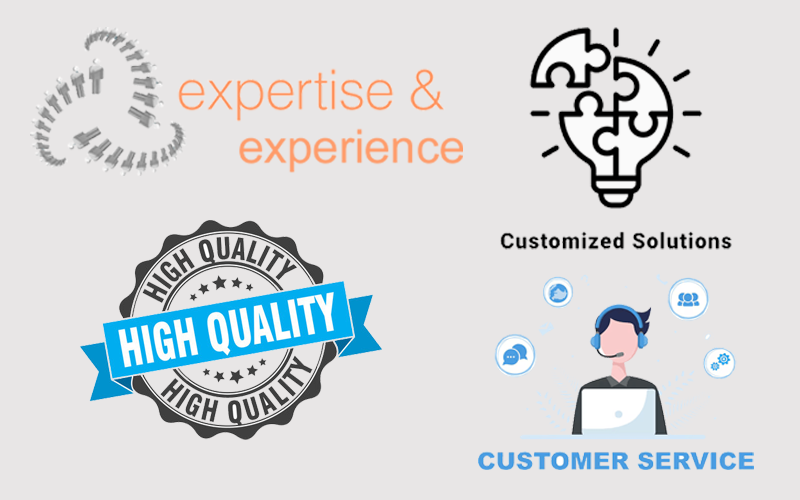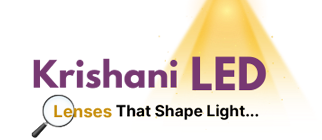- Home
- Industry Standards And Testing Facilities
Industry Standards and Testing Facilities for LED Lenses
There can be no compromise on quality and performance when it comes to lighting products, particularly LED systems. LED lenses are a crucial part of contemporary lighting systems as they concentrate and direct light into precise illumination effects. By following strict industry standards and testing protocols, we guarantee that each lens we design is safe and reliable. This article provides the most significant testing procedures, certification requirements, and the contribution of photometric testing laboratories to determining LED lens quality. We will further explore the observed global standards and provide reasons why this is of such great importance.
Why Standards and Testing Are Important?
LED lighting systems are utilized everywhere in homes and offices, warehouses, and medical equipment. The lens on an LED product has a large impact on where light is going, how bright it is, and how efficient the entire system is. This is why testing each lens thoroughly and adhering to approved standards is so critical. These standards ensure:
- Consistent product quality
- Improved performance
- Product safety
- Increased lifespan
What Are LED Lens Testing Methods?
LED lens testing methods are used to verify the quality and performance of the lens under actual conditions regarding light direction, brightness, heat resistance, and durability. Testing LED lenses involves verifying the optical performance, mechanical strength, and compliance with safety standards. The most common methods are:
1. Photometric Testing:
This measurement verifies the light emission pattern, beam angle, and luminance. This is typically done in photometric test laboratories, where goniophotometers and integrating spheres assist in determining how much light is emitted and in which direction.
2. Thermal Testing:
Since LED lenses are generally prone to exposure to heat, thermal testing will ensure that the material is intact at high temperatures with no change in shape or transparency.
3. Mechanical Stress Testing:
This includes drop testing, pressure testing, and vibration testing to ascertain if the lens can endure harsh conditions, especially in industrial or outdoor applications.
4. UV and Weathering Tests:
These simulate long-term weather and sunlight exposure to ensure that the lenses don't crack, fade, or become brittle.
What is Optical Component Certification?
Following all the tests a lens has to undergo, it has to be an optical component certified. Optical component certification a formal approval by a certified testing organization, stating that the lenses are at least on par with industry standards in terms of performance, quality, safety, and reliability. At Krishani LED Lenses, we focus on delivering certified optical parts that our customers can trust without doubting the quality. Our optical component certification includes:
- Ensuring optical transparency and transmission
- Ensuring material safety and non-toxicity
- Achieving design accuracy and production consistency
Understanding ISO Standards for LED Lenses
ISO standards, established by the International Organization for Standardization, are a widely accepted collection of guidelines. They provide consistency, quality assurance, and product testing in various industries. By these standards, Krishani LED Lenses guarantees each product is reliable, traceable, and of the same standards to global customers. There are some most applicable ISO standards for LED lenses, which are:
- ISO 9001: Quality management systems that ensure consistent manufacturing processes.
- ISO 17025: Laboratory testing accreditation, verifying test result accuracy and reliability
- ISO 13485: Essential for lenses used in medical lighting systems to maintain safety and hygiene requirements.
Role of Impact Resistance Standards for Lenses
In most industries, the lenses are subjected to rugged conditions. They are dropped from heights, hit by other objects, or subjected to heavy machinery. That is why impact resistance standards for lenses are required. They determine how much pressure a lens can withstand before it breaks or cracks. Polycarbonate, PMMA, or glass are tested depending on their nature. At Krishani LED Lenses, we consider product design for impact resistance to ensure resilience even in tough conditions.
LM-79 and LM-80 Testing: What They Are and Why They Matter
Two of the most important LED lighting product standards are LM-79 and LM-80. The Illuminating Engineering Society (IES) developed these standards, which detail how to test and report key performance parameters for LEDs and optical components. At Krishani LED Lenses, we use LM-79 and LM-80 testing together to ensure the performance and longevity of the LED system.
1. LM-79 Testing:LM-79 testing is done in photometric test labs and provides a proper indication of how the entire lighting system works. It outlines how to measure the performance of LED light systems, which are:
- Luminous Flux (Total Light Output)
- Luminous Efficacy (Efficiency)
- Color Characteristics (CCT, CRI)
- Input Power and Voltage
2. LM-80 Testing: LM-80 testing addresses the lifespan and reliability of the LED light source. It tests how the brightness of the LED diminishes over time, normally between 6,000 to 10,000 hours of use. It measures
- Lumen Maintenance
- Color Maintenance

Why Choose Krishani LED Lenses?
At Krishani LED Lenses, we are driven by core values that guide our business and define our commitment to our clients.
Expertise and Experience - With years of experience in the optical and lighting industries, we have the expertise to deliver custom-designed solutions that meet the most demanding requirements.
High-Quality Products - Our lenses are made from high-quality materials, ensuring durability, clarity, and long-lasting performance.
Custom Solutions - We specialize in providing tailored LED lens solutions that meet the unique needs of our clients.
Exceptional Customer Service - We provide end-to-end support, from initial consultation to post-delivery assistance, ensuring our clients are delighted with the results.

At Krishani LED Lenses, we don't just design optical components, we make sure they're tested, certified, and meet industry specifications. Whether it is meeting ISO standards, passing photometric laboratory testing, or meeting impact resistance standards, we make lenses that meet and exceed the needs of the customers. Through optical testing, impact testing, and ISO, LM-79, and LM-80 certification, we ensure that each lens is safe and reliable. For more specific information regarding our certified LED lenses, call us at +1 917-730-4350 or email us at info@krishaniledlenses.com today.

Ready to See your Idea into Reality
We have served 157+ Clients so far… Discuss your Requirements with Our Experts.


